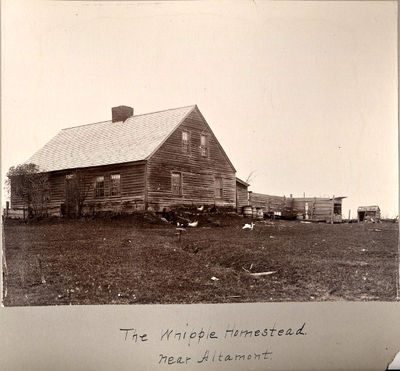Malachi Whipple Homestead
The following history is from the book "A Gift of Heritage" by Robert B. Whipple
Malachi Whipple came here from Stoneington CT, in 1793.
I am not sure if his was the original lease on that farm or if he took over a lease from an earlier settler there. In any event, to my knowledge, all the farms in the Helderbergs at that time were leased from Stephen Van Rensselaer under what was known as the Patroon system. Actually by 1793, because of a law passed against feudalism in 1792, Malachi, I'M sure, started out with a very weak kind of deed with all kinds of restrictions. Among other things he was obliged to pay 10-14 bushels of winter wheat, four fat fowls and give a days service each year with a team and wagon and deliver his assessment to Albany. I remember seeing some old receipts for the wheat, fowl etc. when my grandmother had them out years ago. In spite of all the limitations and lack of incentives in his deed-lease agreement, in 1820 the farm won a premium as the model farm in Albany Co. The award was two silver pitchers and four silver cups.
In 1822 the town of Knox was cut out of the town of Berne and Malachi became it's first Supervisor. Malachi moved to Berne in 1825 and purchased the grist mill as well as two other properties. Also, with the help of William H. Ball and Lyman Dewitt, he built a carding and fulling mill.
History records that Malachi was recognized as a leader and chosen for positions which required wisdom and prudence. Malachi passed away in 1826 at a relatively young age and his wife Pricilla followed in 1860. Then in 1849, Amos Whipple, Malachi's son, deeded an acre of land to the town of Knox, known as the "Old Burying Ground" or the Whipple Cemetery. We wouldn't try to imply that the Whipples were tough but Grandpa Whipple always said they had to shoot the first Whipple to get the cemetery started.
